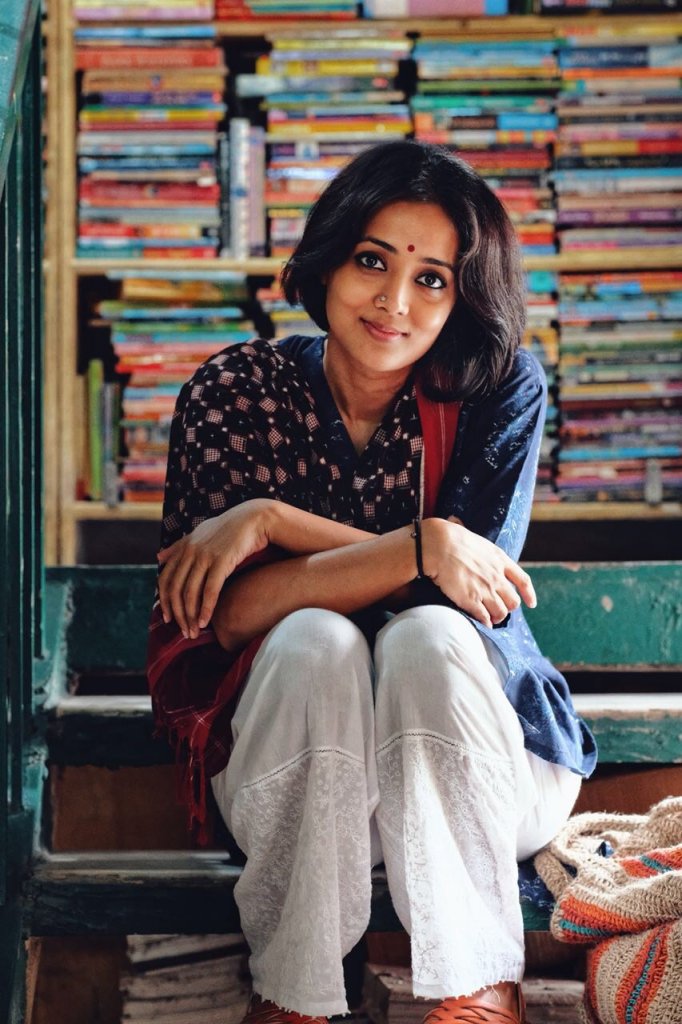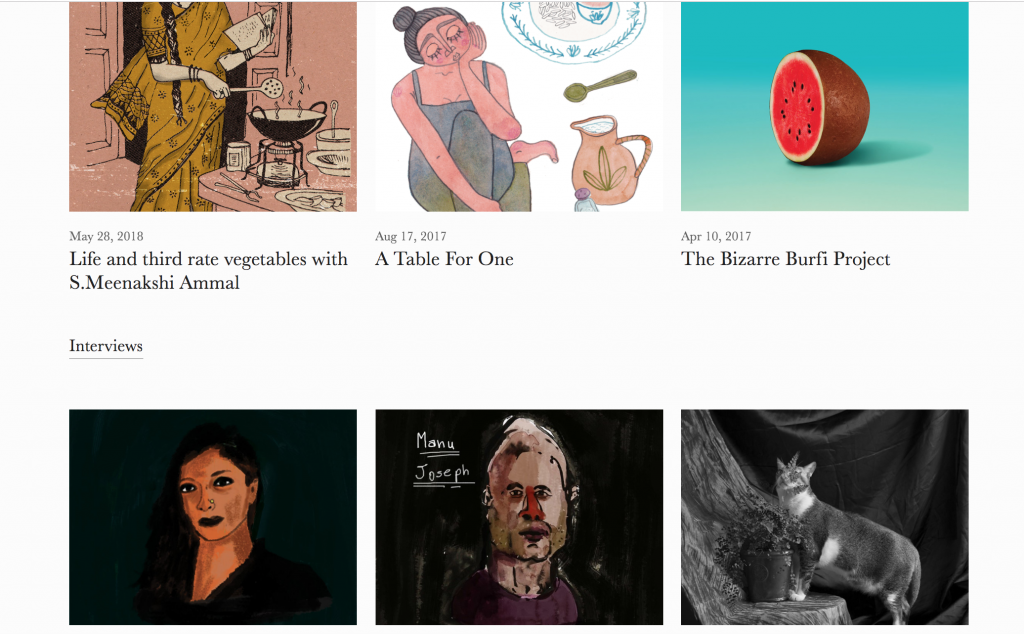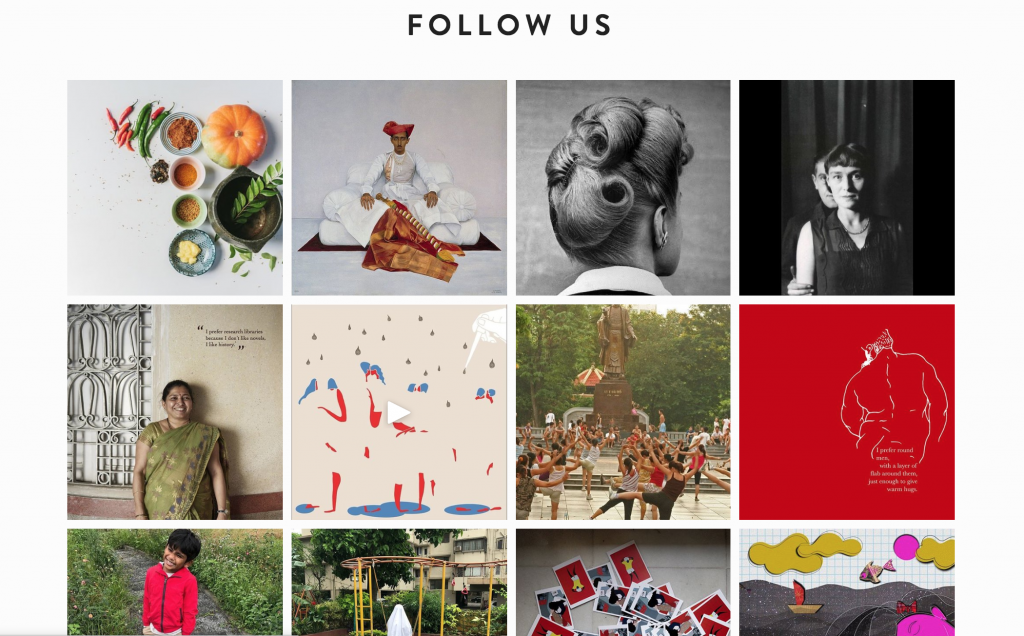‘A quiet, gentle corner on the internet’ is how Meera Ganapathi refers to her digital publication Soup, and honestly, we couldn’t have found a better expression to introduce it. Launched in February 2016, Soup documents contemporary Indian culture by zooming in on the often ignored details, seemingly minor everyday stories, and deeply personal narratives. With its content and the way it is presented, Soup has indeed created a calm, thoughtful, and often delightful voice in the clamorous online world.
For the fourth edition of our ‘Magazine Workshop’ column, we speak to Soup’s founder/editor, Meera.

Meera Ganapathi (Photo by Aashim Tyagi)
What inspired you to start Soup? Was there any particular reason for choosing digital as your publishing medium?
I’ve always been interested in the little things, odd, unnoticed sometimes even forgotten details-
what someone eats when they’re sad, notes left behind in second-hand books, feathers collected by a seven year old bird watcher – for me, these details give greater insight into people and the times than what seems obvious. Soup is an extension of that desire for detail. I wanted to create a quiet, gentle corner on the internet that spoke about sensitive subjects without sensationalizing them.
I love print. But Soup is online because the internet is accessible to all, reader and publisher alike, without the cost and circulation issues that typically come with print.
What do you enjoy the most about making Soup, and what are the things you grapple with?
The one thing that makes Soup a joy to work on is the independence. I worked in advertising for eight years and the number of people involved in the process of approval can take a toll on you and your creative output. Here it’s just us, me and the artist or writer I’m collaborating with, and between us we decide what works best for the story.
However, this independence can also become a difficulty. Working in a self-funded publication means having to do a lot of the work on your own, that would typically be left to other departments in a regular magazine. For instance, I have to get into casting, direction, production, locations, and sometimes even styling. While casting is always fun, with a limited and sometimes no budget, the production aspect of the work can get to me, especially because it isn’t my area of expertise. I’ve had sleepless nights over these things and rightfully so, as some aspects should be left to those who excel at them.
I wanted to create a quiet, gentle corner in the internet that spoke about sensitive subjects without sensationalizing them.
Has your vision or the reason for publishing Soup evolved in the last two years in any way?
The vision has always remained the same, but the means have changed over these two years. Earlier we stuck to telling visual stories with photography as our primary medium, and now we are dabbling in long form, comic strips, and videos. Long-form specifically has been quite a pleasant surprise. People love to say ‘no one reads anymore’, but I feel like reading has undergone a revival with the internet. In fact, some of our most loved stories are in long-form writing.
What inspires you to keep going? And how do you sustain Soup financially?
Since the stories are always personal, you end up getting to know people. And a commonality that I’ve found in the people that inspire me is they might be living ordinary, unremarkable lives, but with just a tweak in their routine, they find peace or momentary happiness.
I feel like there should be awards for these things – the lady who passionately grows plants in her gloomy kitchen, the 65 year old man who held his wife’s hand on the beach for just a minute before she yanked it away, the lady who embroidered flowers onto her mother’s saree when she couldn’t afford to mend the tears. There aren’t any awards, but we should remember their stories.
Soup is essentially a collaborative platform. So we work with artists and writers who are looking to explore an interesting creative collaboration. Occasionally, we also tie-up with brands to create digital content for them, and when that happens, I try and work with the same artists to balance things out. But by and large we avoid huge advertising deals and sponsored posts to maintain honesty in our content. The dream of course is to have a creative project funded by a larger agency that gives us freedom to explore a subject and execute it well.
What advice would you give to someone who wants to start a new independent magazine?
I think there’s so much content out there that the biggest responsibility any independent magazine has is to be fresh and interesting. Don’t churn out stories, create them.
People love to say ‘no one reads anymore’, but I feel like reading has undergone a revival with the internet. In fact, some of our most loved stories are in long-form writing.


